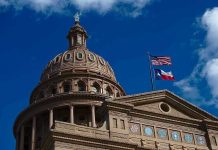
(BrightPress.org) – The Wisconsin Supreme Court collectively ruled in favor of pro-life advocate Brian Aish, nullifying an injunction that had blocked him from sharing his views on public property in front of a Planned Parenthood facility. This decision, announced on June 27th, 2024, marks a significant victory for Aish and his legal team from the Thomas More Society.
In 2014, Aish started speaking out for pro-life causes on the sidewalk in front of the Planned Parenthood facility in Blair, Wisconsin. He often shared Christian messages of repentance. Nancy Kindschy, a nurse at the facility, sought a court order against Aish after several interactions, claiming his presence was threatening. In 2020, a county judge issued the injunction, which was upheld by a state appeals court in 2022. The court ruled that the injunction did not violate Aish’s First Amendment rights, as Kindschy found his message threatening.
Thomas More Society attorneys took the case to the Wisconsin Supreme Court, arguing that Aish’s speech did not constitute a “true threat” and therefore deserved First Amendment protection. The case was argued again in 2024 after the U.S. Supreme Court’s 2023 decision in Counterman v. Colorado. This ruling clarified that a speaker must act recklessly to determine whether their words would be seen as a “true threat.”
The Wisconsin Supreme Court ruled that the injunction violated the First Amendment and was a content-based restriction on Aish’s speech, failing to meet strict scrutiny, the highest standard of judicial review. Justice Rebecca Bradley noted in her concurring opinion that the lower court did not deem Aish’s statements as true threats, and no reasonable adjudicator could have made such a determination.
Joan Mannix, Executive Vice President and Managing Counsel at the Thomas More Society, expressed satisfaction with the ruling, highlighting the unanimous decision as a reaffirmation of free speech protection, even for unpopular or controversial viewpoints. Mannix emphasized that the First Amendment protects against the suppression of disfavored political voices.
Copyright 2024, BrightPress.org













